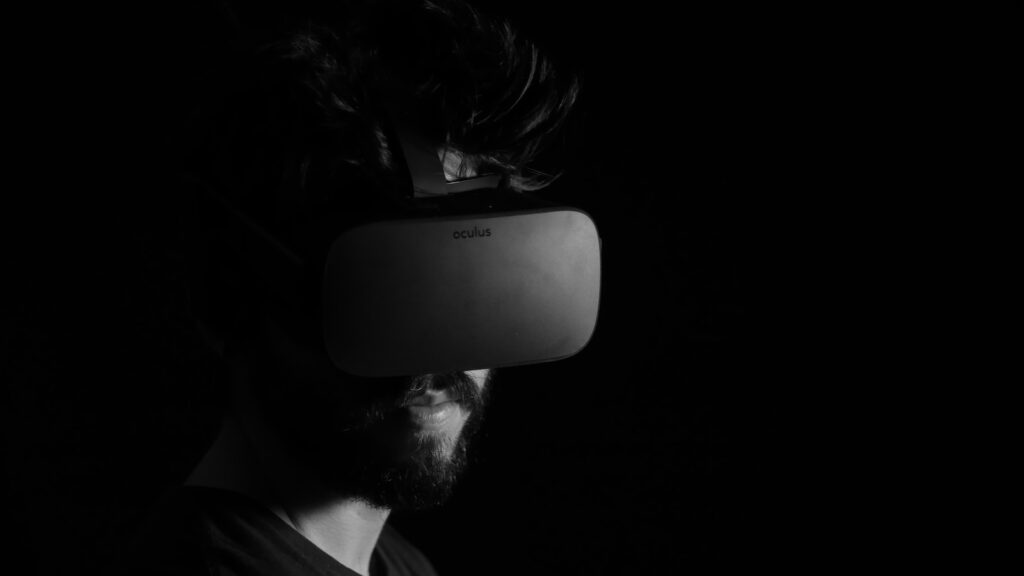The future is coming. Will movie companies be ready when it arrives?

If you missed last weeks post, I lamented how little the film industry seems to have learned and changed from the last 18-month long ass kicking that they have gotten. Things may not even be great this fall and winter, and 2 years seems like plenty of time to adjust even the largest company right?
There are many more complications holding things back than we are able to talk about on the show, and even more than that which we just don’t know about because those kinds of agreements are generally private. Maybe AMC and Regal want to change and are being held back by contracts with Disney, Sony and Warner. Movie theaters can’t exists without agreements with the companies making the movies, unless they want to start making movies on their own Netflix-style.
But this week I wanted to go beyond the normal short-term issues we normally talk about. I wanted to dream on the far future of film-going. What is “going to the movies” going to look like in 2040? Is it even more detailed audio and video along with $20 buckets of popcorn, sticky floors, screaming kids and a jerk in the row behind you who just won’t shut up? Maybe. But I don’t think the “traditional” model of theater watching is going to last forever. And the earlier the theater companies also realize this, the better off they will probably be.
In my view, a persons childhood sets a precedent for what they will be willing to accept as an adult, even if it is less convenient than it could be. When I was young, the World Wide Web didn’t exist at all. As I grew up through my teens I watched it grow in usefulness, but it wasn’t until the age of widespread broadband that really interesting things started to happen. We could watch video without waiting forever for it to download first. We could make phone calls with our friends right through the computer.

After that, smartphones appeared and things got really interesting. You could do everything you used to do from your computer, only from ANYWHERE. Watch movies on the bus. Play a game while you’re in a waiting room. Portable, connected computing that fit in your pocket.
All of these things I was able to witness in real time, so I know what it took to get them where they are. But I also take so many things for granted because they happened before my own time. The advancement of the car, the leaps from car to plane to space. I don’t even think about these things and where they came from because they already existed when I became aware of them. And I predict the same will happen with the current generation of children.
And this on-demand, always-connected, everything-is-a-touchscreen mindset is something the upcoming group of consumers are going to have, and it is something the businesses of today are going to have to account for tomorrow.
Think about the world that kids under 10 exist in now. They are able to communicate with anyone, anywhere at any time 24/7. They are able to pull media right out of the air non-stop, at will, limited only by their own data caps. How do you tell someone who has that expectation around media that they have to play by your rules? Is there going to be a movie schedule revolt about it? Of course not. But a portion of those would-be customers will stick with what they know, and wait for it to be available at their convenience.
Since money makes the world go round, this is the point that I think will finally drive innovation. Business will only change so much when they have to, but how do you maintain the “traditional movie experience” with individual flexibility? If you, as a film maker, want your audience to see your creation “the way it was intended” and not on a phone screen, how do you leverage technology to make that happen, while keeping the lawyers and middle-managers happy?
My guess, right now, is VR. The technology exists that can simulate a full-size movie theater, surround sound system and all for one single person. That person can also be anywhere and anytime to use it, at their own convenience. We have the technology. The question is which company is going to be the first to risk it.
Maybe, just maybe, we’ll actually get the VR paradise 80’s movies promised us. Or maybe we’ll end up in a Disney-branded Matrix of retinal-targeted advertisements. Only time will tell.
Think you have a better prediction on the far future of the film industry? Leave a comment!
